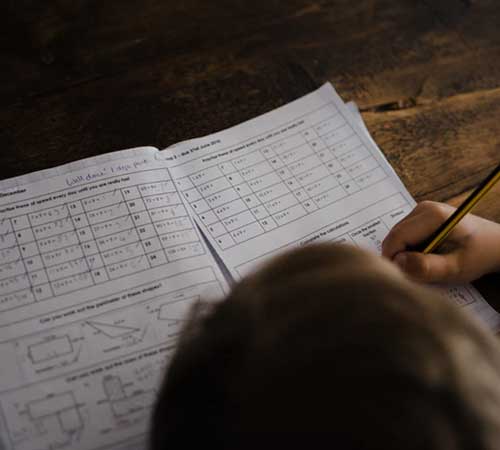
Growing up, I too hated math. For me, it was the fact that the teachers I had then made it seem like an impossible subject to comprehend, like it was only to be properly understood by those born with a natural math brain.
Ranging from discouraging teachers to difficulty in cramming formulas, here are five things you can do if you have a child who hates math.
1. Build Their Confidence In Math
Have a dialogue. Find out why he/she hates math. Something may have happened that you may not know about; a teacher they dislike or a bunch of formulas that they can’t quite get into their heads.
Talk to them about their anxiety surrounding math, and go through these worries one by one to see what you can do to help.
For instance, one of your child’s math problems might be that they feel if they get an answer wrong, their teacher will think they are daft.
Tell your child that students get questions wrong all the time and there’s nothing wrong with that.
The teacher will not think them stupid, but will only correct and point them in the right direction.
Acknowledge and remind them that everybody learns at their own pace.
Hence, when tutoring them, do not move on to the next lesson until they have successfully grasped the first.
Granted, the teachers may not be able to do this so that the class as a whole doesn’t have to move at a slower pace, but you sure can. It is what you have to do if you want to move your child from hating math to liking the subject.
And remember that kids develop math skills at different ages, and some kids may be more language-oriented than math-oriented.
Let them know that it’s ok to have other strengths, and together, find a learning method that works best for them.
2. Hire A Tutor
One way to help a child get over their dislike for math is to give them some additional training in the subject.
Your child might be struggling to grasp the concepts in the classroom, but with a bit of outside help, he/she might be able to perform well.
So, sign them up for some after-school tutoring.
One-on-one classes are best. If you have some time, you can also work with them individually after school.
If your child has difficulty learning math through more traditional methods, you can consider hiring a tutor who specialises in teaching math in nontraditional ways.
You can say something like, “Your teacher’s explanation is hard for me to grasp, maybe we can find other ways to explain a little clearer.”
Find ways to incorporate math into daily activities. For example, you can have your child calculate change at the supermarket.
Apply math when shopping, cooking, calculating time, and other daily activities.
Though some of the math concepts your child is learning right now might not seem to have much real-world application, keep at it.
They will not know when they will need to use that particular form of math in adult life. Stress this fact to him or her.
3. Teach Them To Take Notes
Your child might be experiencing anxiety because they don’t feel that they have any information on how to complete the math they are assigned.
Some schools don’t allow students to bring home their textbooks, so your child might feel lost.
Encourage them to take notes in class and to copy down any necessary formulas or tips that their teachers share.
They can use these to study while completing homework.
In the same vein, teach them to review their notes daily even when they don’t have a test or homework. And provide them with the tools they need to be successful.
Though some kids can learn from numbers on paper alone, others might need additional tools in order to get it.
There might be a need for visual aids or manipulatives like blocks.
4. Take The Emphasis Off Of Tests And Timed Assignments
Yes, tests and exams are very important in today’s school systems, the ultimate objective, however, should be to train students who are confident in and capable of doing math.
Do not have pop quizzes too often and avoid frequent testing.
Instead, let your focus be on encouraging learning and the application of knowledge.
Do not rush them to complete their homework and as much as is needed, provide an additional time when completing homework.
The last thing you want to do is to make studying more stressful for a child who hates math.
What you can instead focus on is making conscious efforts to speak positively about math. Talk to your child/ren about how beautiful math is.
See movies or read books that feature famous mathematicians.
Also read: Poor Grades: 5 Effective Ways To React To Your Child’s Report Card
Orienting them that math can be fun will help them feel less dislike for` it.
And avoid spreading your own math anxiety to them.
Comments like “I’m not good at math, either” won’t be beneficial to them.
Even if it’s unclear to you too, make comments like “Don’t worry, we are going to figure this out together.
5. Create Math Rituals
Begin the day with a morning math problem over breakfast. You can also have a bedtime ritual that involves math.
And keep in mind that it is never too early to discuss math with your child.
Even preschoolers can have a discussion about math; around finding patterns or comparing quantities, for instance.
You can say things like: “How many more blue stuffed animals, or yellow stuffed animals do you have?
Find more parenting tips here.



